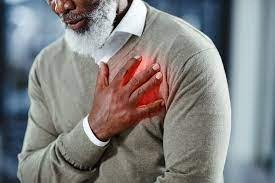Early detection of cancer in children is crucial, so be aware of the warning signs
The World Health Organization estimates that between 0 and 14-year-old children get cancer per year at a rate of 40,000. Leukemia, lymphomas, brain cancer, neuroblastoma, and solid tumors such Wilms tumors The majority of sarcoma cases occur in youngsters. The majority of children malignancies are curable and treatable. Childhood cancer deaths often result from misdiagnosis, delayed diagnosis, difficulty to receive appropriate care, and treatment discontinuation. Consequently, it is critical to detect cancer in its early stages, and with the right treatment, over 80% of youngsters may be cured. It becomes essential that these kids have an early diagnosis and are sent to the right treatment facilities. Typically, screening cannot be used to either prevent or detect pediatric cancer.
Parents and caregivers need to be aware of a variety of early warning symptoms of children cancer. It’s crucial to take your kid to the doctor if they exhibit any of the following symptoms, even if they could be hazy or non-specific and might be brought on by other illnesses:
a fever that lasts longer than 7 days and is accompanied by nighttime sweating
Unaccounted for bruises or bleeding, and appearing pale
weariness, weight loss, and lack of appetite enduring months
Increasingly severe headaches that occur more often in the morning and are accompanied by vomiting
Changes in balance and coordination that make it difficult to walk or without tripping.
Bone aches that cause a youngster to miss school, wake up at night, and have been getting worse
Eye anomalies such as double vision, squinting, and the white-eye reflex, which causes the pupils to appear white
a lump or an enlargement that persists.Although it might occur anywhere on the body, the belly, neck, chest, or armpits are the most typical locations.
For afflicted children and their families, early identification of pediatric cancer may literally mean life or death. Early diagnosis may result in more effective therapies, a better quality of life, and higher survival rates. Do not hesitate to speak with a healthcare provider if you see any of the aforementioned symptoms or have concerns about your child’s health. To improve the likelihood of surviving pediatric cancer, regular checkups and open contact with medical professionals are crucial for assuring early detection and prompt action.







